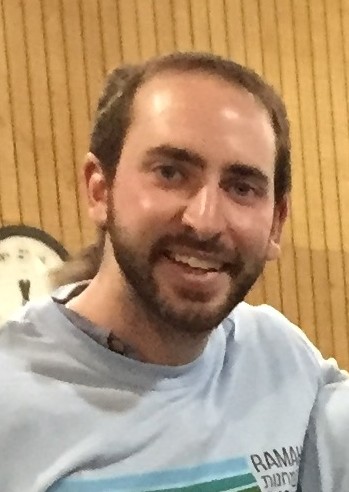Please enjoy a D’var Torah this week from Josh Warshawsky, 2015 Rosh Tefillah and Artist in Residence. Josh is currently in rabbinical school at the Ziegler School in Los Angeles. He just finished his second CD, “Mah Rabu,” featuring many of our favorite camp songs such as “Kol B’Ramah,” “Mah Rabu” and “V’ahavta.” You can check it out on iTunes or at www.joshwarshawsky.com. Reflections on Parashat Yitro by Josh Warshawsky
“We’re all in this together, once we know that we are, we’re all stars, and we see that! We’re all in this together and it shows when we stand hand in hand make our dreams come true!”
Many of you may recognize these iconic words from “High School Musical,” which came out ten years ago this week. Seeing a message from the stars of the show reminiscing about their experiences ten years ago brought back memories of my own as well. I remember watching High School Musical my Nivonim summer as we got ready for the Nivo-Machon basketball game. These words inspired us to come together, to become one. So many experiences at camp are about coming together: as a cabin for activities and campouts, as an eidah for sports games and plays, as a camp for the Zimriyah, Yom Sport, the Rikudiyah, and to pray together on Shabbat. Community building is inherently essential to life at camp. It becomes incredibly important in this week’s parashah, Yitro.
As we travel through the stories and lessons of our Torah, there are some portions in which it becomes difficult to decide what to focus on, because there is just so much that happens in just a few columns of text. Parashat Yitro is one of those well-endowed portions: Moses’s father-in-law Yitro joins him in the desert, he turns Israel’s entire judiciary system on its head, and of course we receive the Ten Commandments at the revelation at Mount Sinai.
One of my favorite Torah commentators is the Netivot Shalom, Rabbi Sholom Noach Berezovsky, also known as the Slonimer Rebbe. The Netivot Shalom was a modern Hasidic commentator on the Torah, and he notes something very interesting about the text leading up to the Ten Commandments. Throughout all of the people of Israel’s journeying, when the Torah talks about the places to which they traveled and the places in which they camped, a plural verb is used: They camped, they journeyed, etc. However, when Israel camps next to Mount Sinai, the text says, “vayichon sham Yisrael neged hahar (Exodus 19:2),” “And Israel (singular) camped in front of the mountain.”
The Ten Commandments are also written in singular form. Some commentators explain that this is because each person heard the Ten Commandments addressed to her/himself alone. The Netivot Shalom offers us another explanation. He says that at the moment that the people camped at Mount Sinai and prepared for the giving of the Torah, they became, “b’lev echad k’ish echad,” “of one heart as one person.” They had joined their hearts and their souls together to become one. Not only that, each and every Israelite had to be there in order for that one heart, that one person, to be complete.
Judaism comes alive when we celebrate it in community. It is only in gathering together that we can reach our fullest potential. The Netivot Shalom usually likes to tie his teachings to Shabbat in some way, and this teaching is no exception. In this parashah we get the 4th commandment, to remember the 7th Day. Later on in the book of Shemot, it says, “vayakhel moshe et kol adat b’ei yisrael vayomeir aleihem eileh hadevarim asher tzivah hashem la’asot otam: sheishet yamim ta’aseh melakhah u’vayom hashevi’i Shabbat…” “And Moses gathered the assembly of the people of Israel together and said to them, ‘these are the things which God has commanded you to do: for six days you shall work and on the seventh day rest…” The question is what are we supposed to do? Since this quote makes it seem as though Shabbat is just about refraining from doing. Rather, the Netivot Shalom says that what we are supposed to do is to follow Moses’s example and gather the people. When we gather together in communities and congregations, that is how we deepen the holiness of Shabbat.
This Shabbat as you gather together with your families and loved ones, know that in doing so you are fulfilling the true essence of Shabbat, and I can’t wait for us all to join together to welcome Shabbat on the Kikar in just a few months! Shabbat Shalom.






